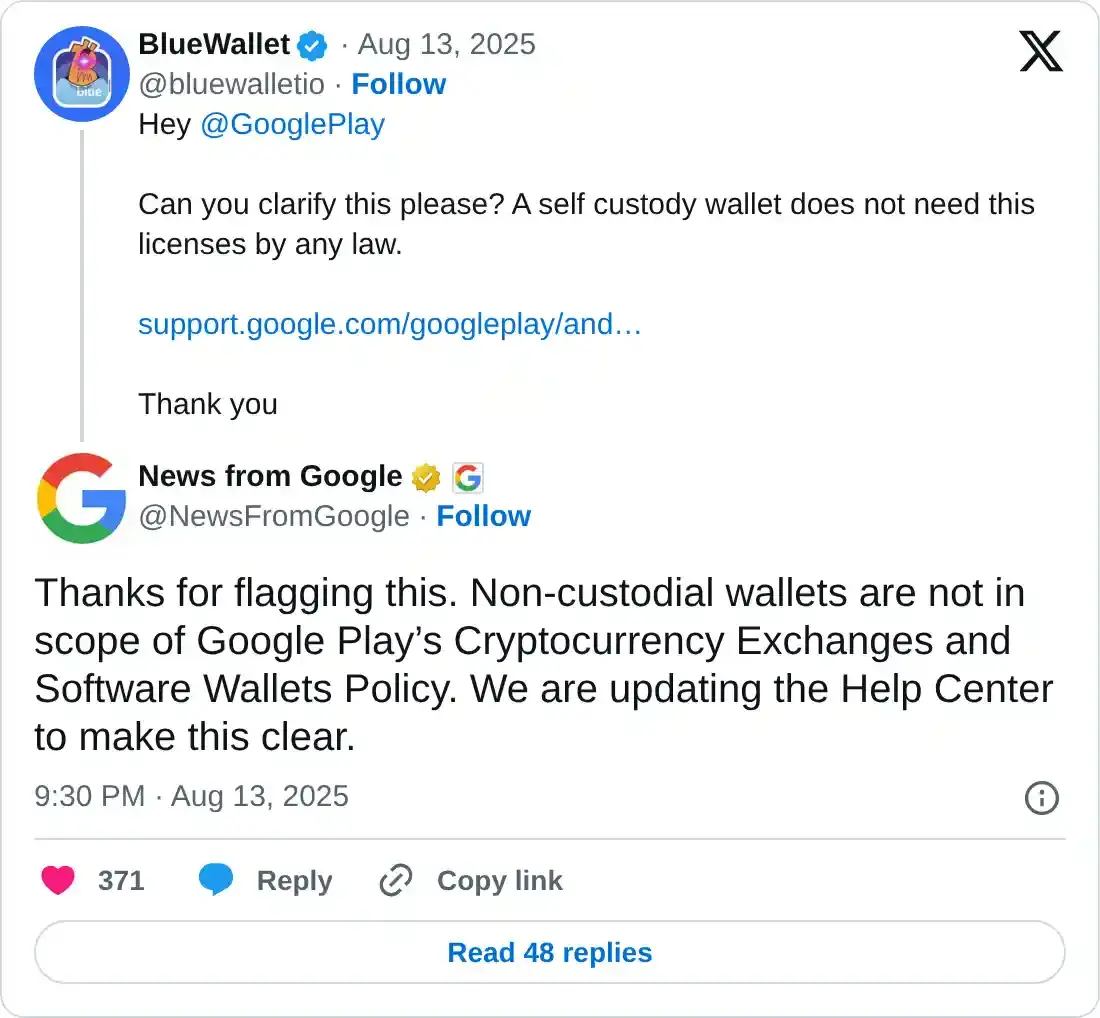Google Draws Line in the Sand: Non-Custodial Wallets Exempt from Crackdown on Unlicensed Crypto Exchanges
Google just dropped a clarity bomb—and the crypto crowd's sigh of relief is audible. Non-custodial wallets won’t get caught in the crossfire of its recent ban on unlicensed platforms. Here’s why it matters.
The Fine Print You Actually Care About
No more guessing games. While Google’s policy update targeted shady, unregulated exchanges, self-custody tools get a free pass. Translation: Your MetaMask isn’t going anywhere. The move subtly endorses decentralization—even as traditional finance clutches its pearls over 'uncontrollable' assets.
Why Wall Street’s FUD Machine Just Stuttered
By exempting non-custodial wallets, Google tacitly acknowledges what crypto natives already know: self-sovereignty isn’t negotiable. Meanwhile, banks keep pretending blockchain is a 'phase'—right before quietly filing their own custody patents. Stay flexible, dinosaurs.
The Bottom Line
Another win for pragmatism over panic. Now if only regulators could take notes—or at least stop conflating wallets with offshore gambling ops. (We’ll wait.)
Google Play set to restrict crypto exchange and wallet apps without proper licences
Google Play will require crypto exchange and wallet developers to hold regulatory licenses before it will publish such apps on its platform, according to a statement on Wednesday.
https://support.google.com/googleplay/android-developer/answer/16329703
The new policy is tied to 15 jurisdictions, including the United States (US), the United Kingdom (UK), and the European Union (EU).
“Cryptocurrency exchanges and software wallets can only be published [...] if the app complies with local laws and industry standards,” the company stated.
The move initially sparked panic across the crypto community, but Google clarified in a comment on X that the new policy does not extend to non-custodial wallets, spreading a sigh of relief.

In the US, developers are required to register with the Financial Crimes Enforcement Network (FinCEN) as a Money Services Business or with a state as a state money transmitter. Google also mentioned that developers can acquire the license from a federally or state-chartered bank.
In the EU, exchange and wallet providers must secure a Markets in Crypto Assets (MiCA) license from a “relevant national competent authority” to operate as a crypto-asset service provider (CASP).
Google also mandates that developers register their apps under its App Content section, declaring them as crypto exchanges or software wallets in the Financial Features Declaration.
However, it permits developers that are targeting locations outside the countries in the policy to continue publishing their wallet and exchange apps on its platform.
The MOVE reflects the growing pressures surrounding regulatory clarity for crypto, amid efforts from top agencies, including the US Securities & Exchange Commission (SEC), to establish proper guidelines for digital assets.
Other regions where this policy applies include Canada, Switzerland, the United Arab Emirates (UAE), and Japan, among many others.

